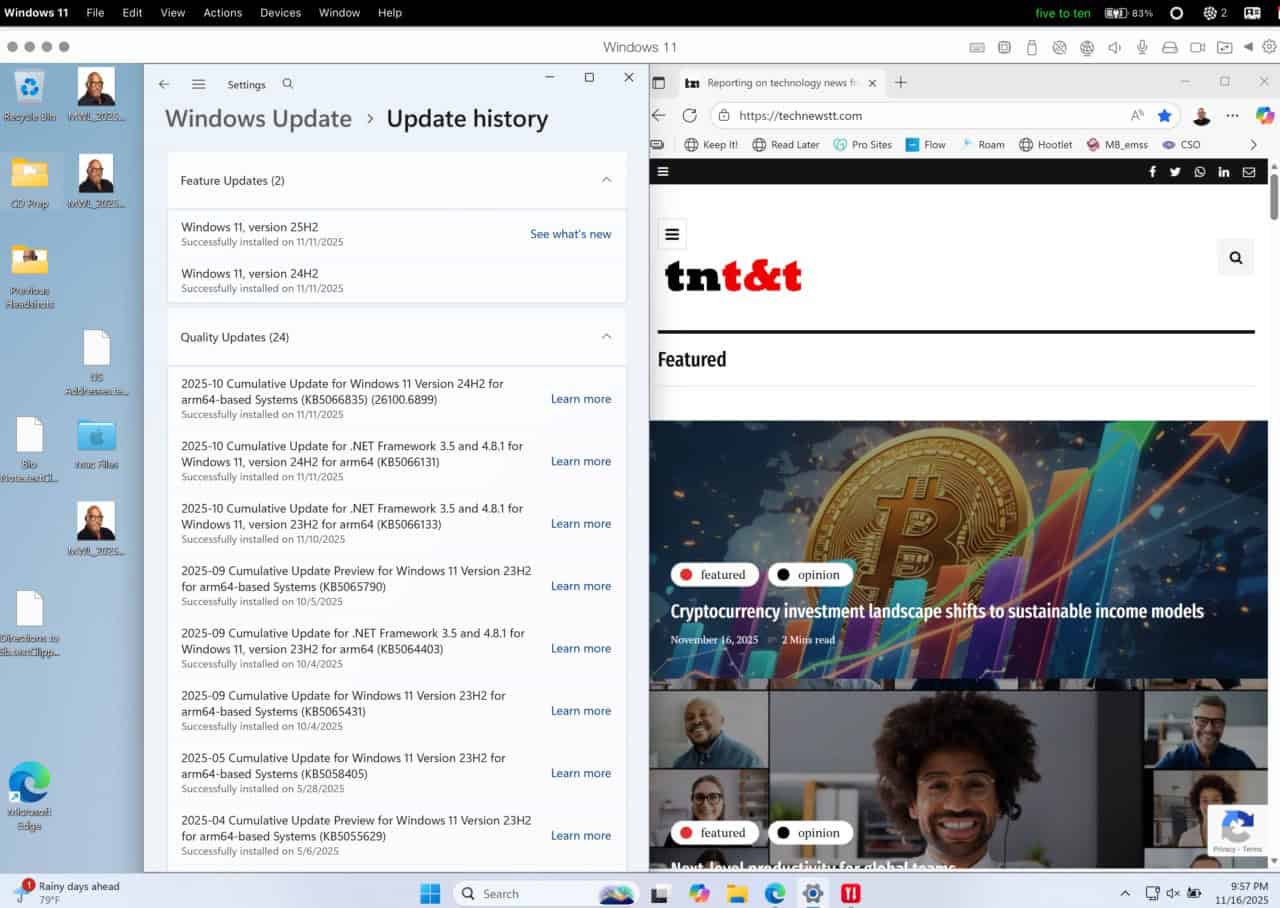
Above: Digicel’s report on digital adoption in the Caribbean for 2024
BitDepth#1482 for October 28, 2024
It’s been two years since Digicel Business reported on the state of digital adoption in the Caribbean.
The 2024 Caribbean Research Report and Maturity Guide recently released by the telecommunications provider measured the region’s response to the digital transformation challenge for the second time.
The report finds an increase in organisations working with a digital strategy, rising to 77 per cent of those surveyed from 61 per cent in 2022.
Surprisingly, 88 per cent of companies also “Believe that digital technology will significantly advance their business objectives.”
Which prompts two questions. What’s happening with the 11 per cent who are aware of digital’s advantages but have no strategy? Also, what are the 12 per cent who don’t believe that digital technology is relevant to their business thinking?
That’s particularly relevant given that respondents who viewed digital transformation as a threat have dropped from 36 per cent just two years ago to one per cent in this survey.
Even among the 77 per cent who have a digital transformation strategy, the survey found that more than half, 60 per cent, have not implemented it.
Across all respondents in the region, 22 per cent have a strategy that is yet to be implemented, the same number from 2022.
The situation seems to be common knowledge. There was an 11 per cent rise in businesses that are confident that their business collaborators and partners are ready to capitalise on digital opportunities. That’s now 37 per cent of those surveyed.
The news isn’t even good in the small and medium enterprise (SME) sector where 87 per cent believe that digital technology is a critical business enabler but up to 66 per cent of digital transformation strategies are delayed among SMEs.
Regionally, the public sector has ramped up its digital adoption from 35 per cent in 2021 to a projected 75 per cent in 2025.
The emphasis on digital transformation in the region is on improving customer experience and engagement, improving processing and cost efficiencies, assisting with business decision-making, improving customer experience and engagement and innovation in the business.
These numbers for the region aren’t far off from the global experience with digital transformation. An estimated 70 per cent of digital transformation projects fail according to a 2016 study by McKinsey Institute.
Among the challenges cited in the report are inadequate resources, deficient change management capacity and inadequate IT solutions.
All these are problems that can be solved by a determined effort to align business spending with results, committing the people, equipment and processes required to achieve set transformation goals.
A 2020 report by Deloitte noted that “Despite 87 per cent believing that digital will disrupt their industry, 87 per cent acknowledged that they don’t have the right leaders.”
Each of the problems noted in the Digicel survey can only be addressed through leadership decisions in business or in governance.
The problem with implementation is the problem with change management. People tend to focus on the word “digital,” because it’s y’know, trendy, and completely miss the more challenging requirement of transformation.
The conversation around digital transformation inevitably is about making processes faster and more cost-effective, and while the digitalisation of business and governance processes can certainly do that, just slapping a digital workflow on top of an entrenched analog process is a disaster in the making.
I’ve been around for two major transitions from analog to digital, as a journalist trading in words and as a photographer working with images.
In both cases, I began with determinedly analog systems, staining my fingers changing typewriter ribbons and mixing nose-curling chemicals in the darkroom.
Those processes taught me useful principles, but the shift to bits required a complete reengineering of process.
I was lucky enough to get started with both these changes early, when the price of failure was cheap, even expected, but looking back, the gulf between how I got things done then and how I do them today has become incomprehensibly vast.
When young people today get excited by old manual typewriters and the alchemy of the darkroom, I just shrug. I know how to use both, but I have no desire to ever do things that way again.
I also ran toward these new developments, often against a prevailing flow in the opposite direction, making career decisions that were risky but, as I saw it, inevitable. Being your own boss means that you get to make and own your mistakes.
The choice is ultimately between remaining coddled by the warmth of the familiar or facing the cold uncertainty of the unknown.
The hard numbers of digital transformation in the region suggest a pronounced and widespread romance with an increasingly irrelevant past and the price of being Luddite is too high for the region to pay.
A download of the report can be requested here.








































[…] Caribbean – It’s been two years since Digicel Business reported on the state of digital adoption in the Caribbean… more […]